OLD POST ALERT! This is an older post and although you might find some useful tips, any technical or publishing information is likely to be out of date. Please click on Start Here on the menu bar above to find links to my most useful articles, videos and podcast. Thanks and happy writing! – Joanna Penn
Podcast: Download (Duration: 1:03:14 — 50.7MB)
Subscribe: Spotify | TuneIn | RSS | More
There are two things that are non-negotiable in my opinion for indie authors who want to sell books.
 Professional editing and professional cover design.
Professional editing and professional cover design.
In today's episode, I talk about book cover design with Derek Murphy, who designs all my book covers, plus we discuss the importance of artists also being entrepreneurial.
In the intro, I talk about my writing updates on Gates of Hell and One Day in New York, as well as the STORY conference I am going to with Robert McKee. I also mention the Christmas thriller giveway – win 12 print books here. I'm speaking in Auckland, New Zealand on Tues 16 Dec, click here for more details, as well as at PubSenseSummit in Charleston in March 2015.
This podcast is sponsored by Kobo Writing Life, which helps authors self-publish and reach readers in global markets 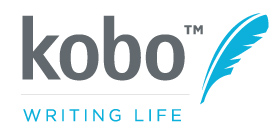
Kobo’s financial support pays for the hosting and transcription, and if you enjoy the show, you can now support my time on Patreon. Thank you!
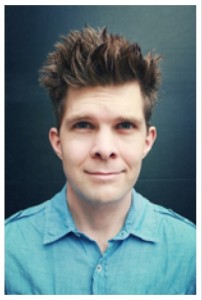
You can listen above or on iTunes or Stitcher, watch the interview on YouTube, or read the notes and links below.
- Derek talks about his background in writing, studying at Taiwan University and his life abroad studying and writing, as well as fine art. He explains how he started an editing business and then moved into book cover design. In terms of marketing, book cover design business builds by word of mouth, whereas many authors won't talk about the editing process. He's traveled a lot internationally although he is American, studying in Malta in philosophy and theology and is now doing a PhD in Literature. We discuss academia vs entrepreneurship, and how to foster the latter by learning over time.
It's important for artists to learn how to sell, as well as create, if they want to make a living from this.
What are the trends right now in book covers? For non-fiction, Bebas neue is being used a lot, and in fact, using fonts and words is prevalent in non-fiction in general, instead of being image heavy. For fiction, it depends on the genre.
- A big mistake for fiction authors with covers – trying to convey the whole story of the book on the cover with aspects of every scene, so it is very over-complicated. You really only have a couple of seconds to catch attention, and that's the job of the book cover. It needs to convey genre, and be good looking so the reader knows they want more. If the reader is attracted, they will read title, book description and then get a sample.
 Using a person on the cover vs using a theme on the cover.
Using a person on the cover vs using a theme on the cover.
- We've reinvented my Desecration book cover design to resonate more with genre and use a person on the front, but sales are inconclusive. Derek talks about a cover he did recently (shown left) which has a reinvented theme only in the center and then with a person added as well – which do you prefer? A person is relatable so it has some kind of emotional impact.
But in the end, the quality of the cover will make a huge cover.
- We talk about the different cultural perspectives on covers – American covers vs European vs Asian. Cultural snobbery around literary covers in Britain does impact the design but may mean they don't sell as well in America. Think about your target market and browse the categories in the country store for that market and make sure that your cover appeals to that market. Right now, we can't upload different covers by market, but hopefully that will come at some point
- Big name author book covers and big name author websites – often they are not optimized to sell books, because those authors will sell books anyway. Over-complicating your covers and website is a bad idea for indies. The point of the cover is to get attention in the genre. The point of the website is to attract people to your email list and show up in search.
The most beautiful thing on your website should be your book covers.
- On color palette, emotional resonance and genre. It's basic color psychology, which works all over the place e.g. what colors are used in hospitals vs boardrooms.
- Top 3 bad things about indie book covers. Colors are a really obvious issue, and a color wash to neutralize the elements will help a lot. The font choice and effects are also important, and using drop shadows to make the font stand out is a classic error. You should use shading and font
choice to make it stand out. An another issue is the amount of text on the cover. You don't want to cram it full of text, especially for fiction in terms of quotes, sub-titles etc. We talk about the eBook Cover Design Awards on The Book Designer which is a great site to find designers and see what works.
Finding and working with a book cover designer
- It's not necessarily about them being nice! You don't want to be the one doing the design, you don't want them to do what you want, because you don't know about design. Trust your designer because of their experience. I have a list of book cover designers here. To get a good cover design, you will be paying quite a bit.
- Derek has a lot of tools for authors who want to try it themselves. Here's how to make your own cover in MS Word, and here's a whole load of templates on DIYBookCovers.com.
On becoming more entrepreneurial
- This is critical for authors and artists. You need to think about the reader, the product, the marketing, the business side – once you've at least written that first book. Marketing doesn't work if you have a product that nobody wants. Think about creating value for other people. How can you improve other people's lives? How can you entertain, educate or inspire? Derek talks about some of the ideas he has at the moment – he's an entrepreneurial machine! We also talk about fear of failure and how you have to get past that as an entrepreneur.
- Derek talks about his own novel, Shearwater, and what he's doing with his own books going forward.
You can find Derek at his website Creativindie.com and also at DIYBookCovers.com as well as on twitter @creativindie

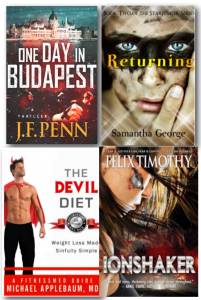
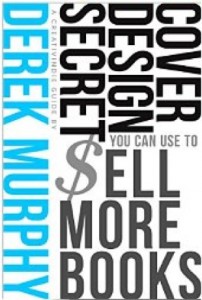
 Using a person on the cover vs using a theme on the cover.
Using a person on the cover vs using a theme on the cover.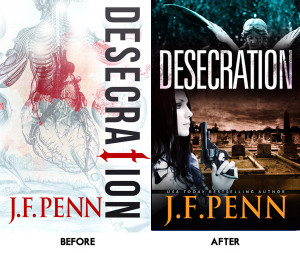
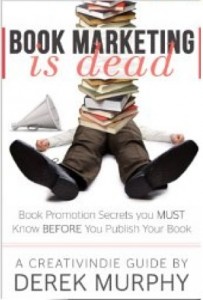


Thanks Joanna! So sad our video crapped out, we’ll have to try again sometime. Look forward to hanging out with you at the London Book fair next year!
This was really insightful.
I’m still more curious about cover design within various markets. Particularly between the major English speaking markets.
Is it better to focus on one market or to find some sort of medium between them?
I would love if this topic could be addressed a bit more in future blogs or podcasts.
Thanks Joanna and Derek!
Woohoo, looking forward to David Farland (I haven’t heard the rest of today’s podcast–I’m excited about that too)!
This was such a great show. I really appreciated the discussion and all the great tips. Thank you both!
Regarding the remake of your cover:
Without going to Amazon to look at the description, the first strikes me as a medical thriller like Robin Cook. The second looks more like a plot driven Dan Brown type religious thriller/mystery. So I’ll have to go over to Amazon after I post this to see the description. I don’t really like the remake, though. The three images seem very separate and pasted-on, rather than working together. Going over to Amazon, I think that merging several images works better on One Day in Budapest. I think it’s the girl that bothers me on Desecration. She just doesn’t look like she belongs, or doesn’t belong with the cemetery background.
I agree. The first one looked more professional. The person — and this was my reaction on my virginal look — seemed pasted on.
Hey! Great episode. I just discovered your podcast recently (which has lead me to picking up a couple of your novels to try out!) and I’m really enjoying it. Keep up the good work!
Thanks so much!
I found this really interesting, because it’s easy to focus on making titles/author names readable on thumbnails. I appreciated this reminder that it’s more about making sure the picture gives the overall impression of the book and makes the viewer want to click for a larger view. Great interview!
Great episode, Joanna, and great to hear from Derek!
He’s done amazing work on my Eagles and Dragons series covers, for which I am always getting a lot of compliments.
Derek, I can’t believe all that you have going on! I always learn a lot from the information you share with your mailing list, so keep up the great work!
Cheers to you both! 🙂
I agree, Adam – Derek is one of the most prolific entrepreneurs I know – brimming with ideas and expertise and generosity 🙂
Great interview! I am familiar with Derek’s book Cover Secrets that Sell more Books. I want to ask him, can you provide please the contact of this designer from the Philippines?
I agree with him that whatever one fictional writer’s success is can’t be often reproduced by others with the same level of success. I will argues that for example, those who are successful don’t require great books or platforms. If you call 50 Shades of Gray a great book, it would be a fat lie and the author didn’t have even a platform at that time. And there are many other authors with the same experiences. My opinion, one’s books should support the development of the writer’s platform.
I found it interesting about the thumbnail title and subtitle. For example, Steve Scott makes them both available but for fiction, I think only the title is advisable to be seen on the thumbnail.
I forgot to ask – should graphic designers read the authors’ fictional books in order to design a better cover? Some designers argue it’s essential, others don’t have the time. What do you think, Derek? Have you read Joanna Penn’s fictional novels to make an outstanding covers?
I don’t think cover designers should, or even would want to, read authors books. You should be able to give a good enough briefing for them. This is one of the reasons I like using Pinterest too – I send my Board for the book to Derek and that gives some ideas.
Nice hint about Pinterest, thanks 🙂
But where is Derek’s portfolio? Not on his website. I looked.
Derek has lots of covers on his site http://bookcovers.creativindie.com/
Thanks for the link, Joanna! 🙂
Awesome podcast, and very timely for me as well, since I’ve reached the point of worrying about cover issues. I was about to make the mistake of asking my artist to busy it up with more book scene pieces. Thanks for stopping that mistake.
I did encourage her to read the book, and I think that was important. One difference being that I have a series of illustrations in addition to the cover, and I have been viewing the cover as just the most prominent of those illustrations. Is that a mistake?
BTW, I feel like there’s some sort of David Farland wave running at the moment. He sponsored one of the latest Writing Excuses as well.
Jack – I think you have to turn your author head OFF and put your customer head ON – go and look at the top 100 books in your genre and see what they look like. Have you over-complicated things?
and yes, David had been on a few shows 🙂 he’s a super guest too!
This is a great article!
I’m in the process of finalizing a contract with a cover designer and have a question…
How should I credit the artist? She has experience with children’s books, where the artist is credited on the cover.
This is my first book, so I don’t know where I should credit her work. Also, is it different for eBooks vs. print books?